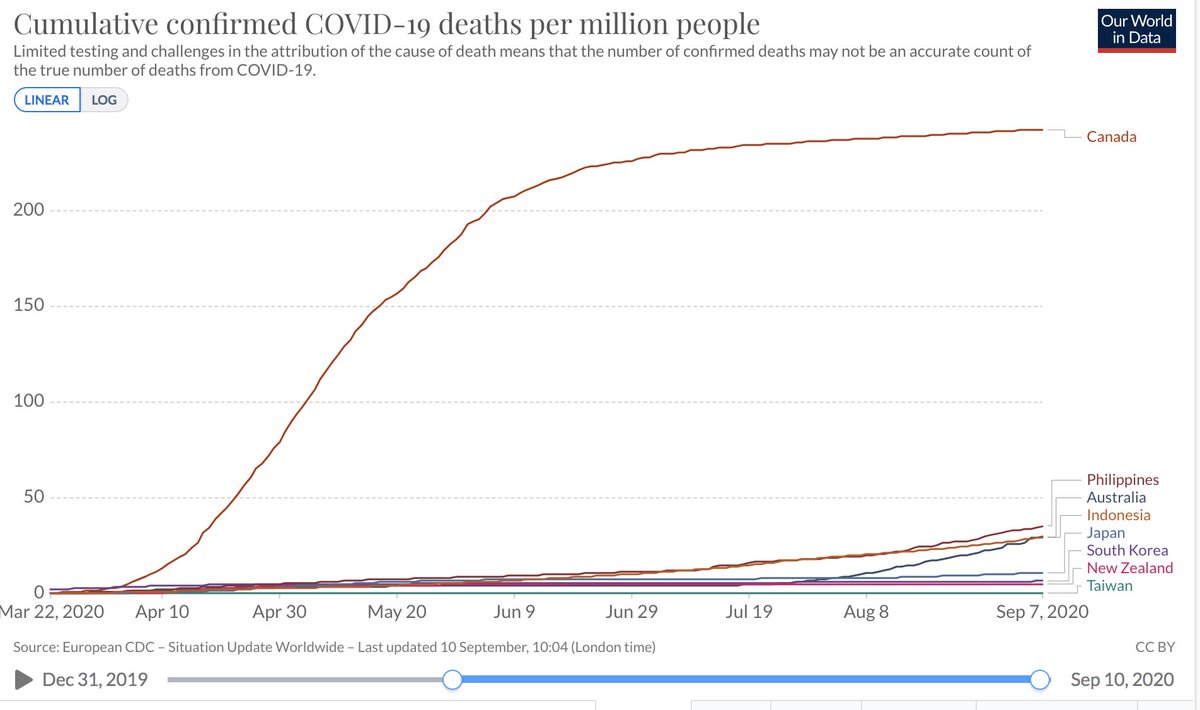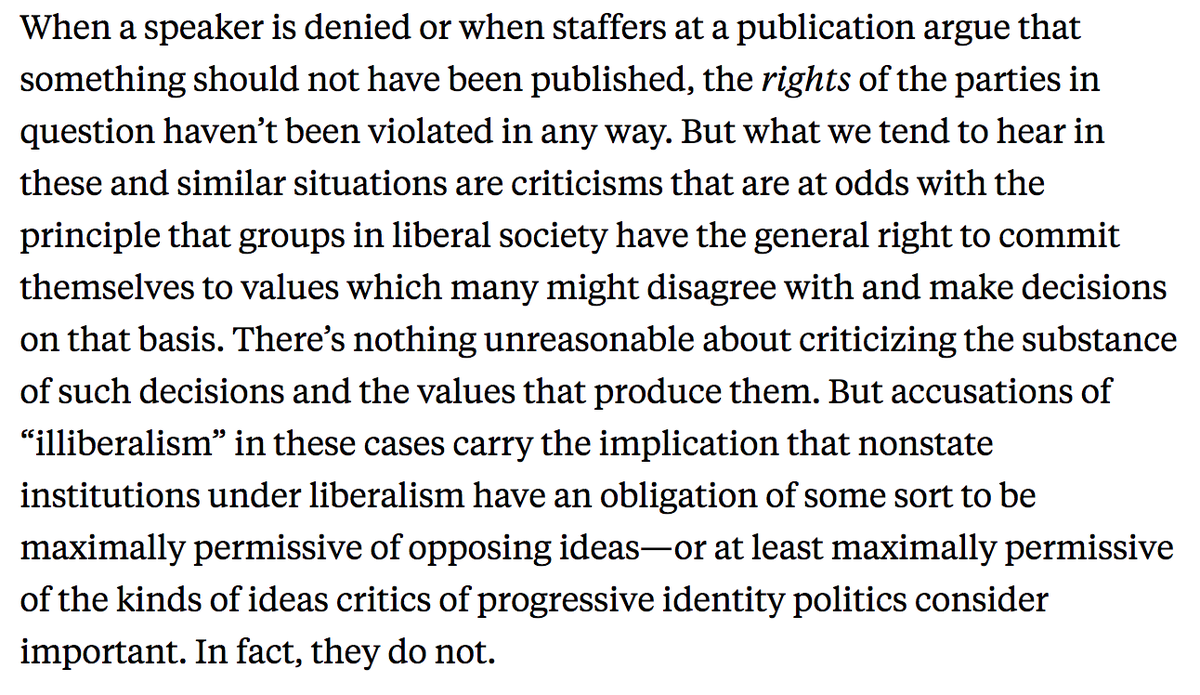
One more thread on the proper baseline for thinking about the US death toll, because I hadn't seen this from @germanrlopez when I wrote yesterday's thread.
vox.com/future-perfect…
vox.com/future-perfect…
Lopez argues that my case for regional rather than global baselines was flawed because I didn't discuss Canada. Fair! But then he just discards the idea of a regional baseline and opts for a general developed-country baseline instead.
But as I argued in the column, regional differences just look much, much more important than country-by-country comparisons. For instance, here's the US compared to a very-heterogenous group of Pacific countries: 

The regional patterns are just clearly significant: Basically of the Pacific has done way better than basically all of the major Western Hemisphere and Western European countries. Yes, including Canada: 

So if you're trying to figure out what a replacement-level US response looks like, and whether we're underperforming that baseline modestly or catastrophically, you need to consider these comparisons.
Yes as @mattyglesias just interjected our death trend is currently worse than the regional comparison. But deaths lag cases and ... 

The point here, to stress again, is not to "let Trump off the hook" for his obvious failures. It's to try to understand, very provisionally, what part of the pandemic failure is specific to his incompetence and which part is more general.
In six months we'll know more. If the US death trend doesn't subside or we get a huge fall wave and deaths in Europe don't rise than we'll be able to say our response was catastrophically worse than all our peers.
But on the numbers alone we can't say that yet. Now I'll let this argument subside, but w/one last point - in response to this @davidfrum portrait of crossing from Canada to the US, from disease containment to disease denial:
theatlantic.com/ideas/archive/…
theatlantic.com/ideas/archive/…
Right now Canada's Covid death rate is about 25/100,000. By my count eleven US states share a land border with Canada. Of those states, seven have death rates lower than Canada's.
statista.com/statistics/110…
statista.com/statistics/110…
And the border states that have much higher death rates are not the Trumpiest states; they're Michigan and New York. This doesn't obviate Frum's comparison. But it's worth noting, as a nod to the complexity of the whole awful business. /finis
• • •
Missing some Tweet in this thread? You can try to
force a refresh






